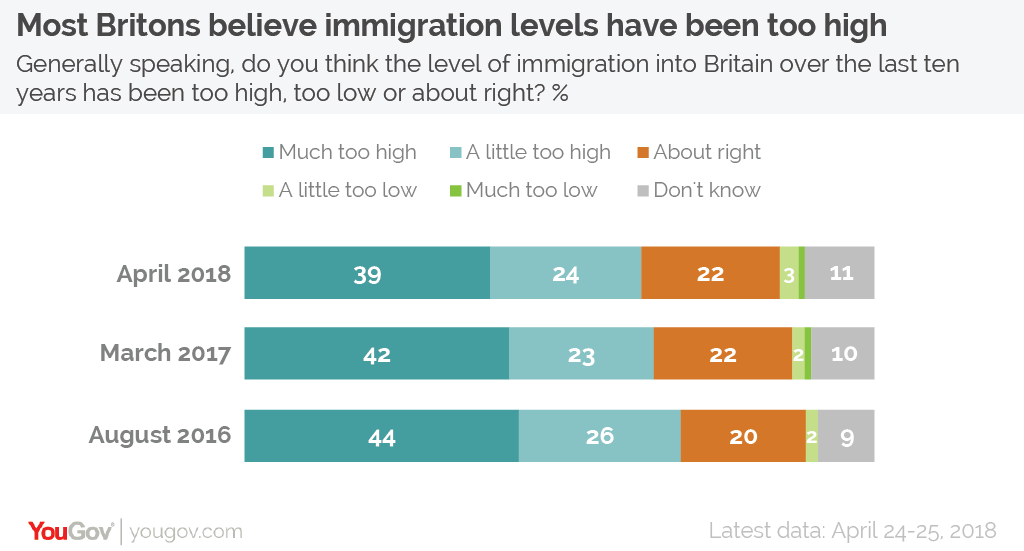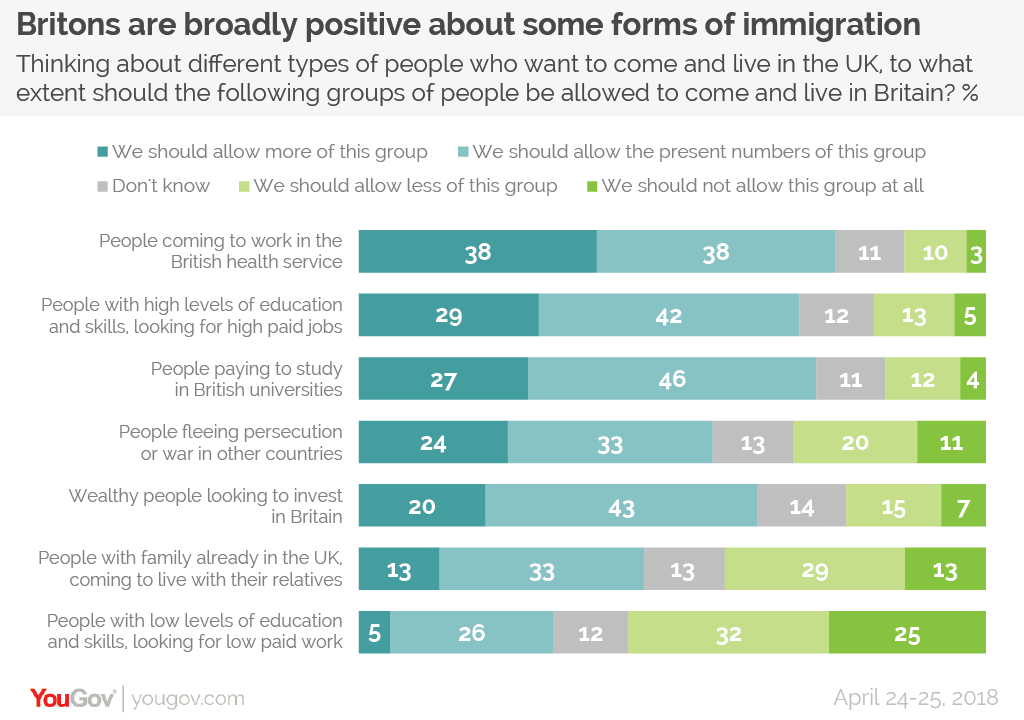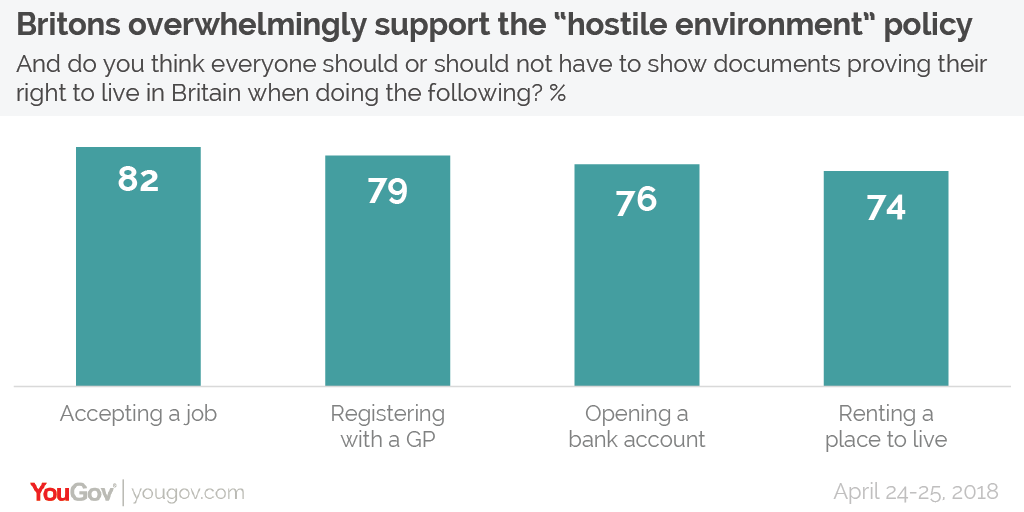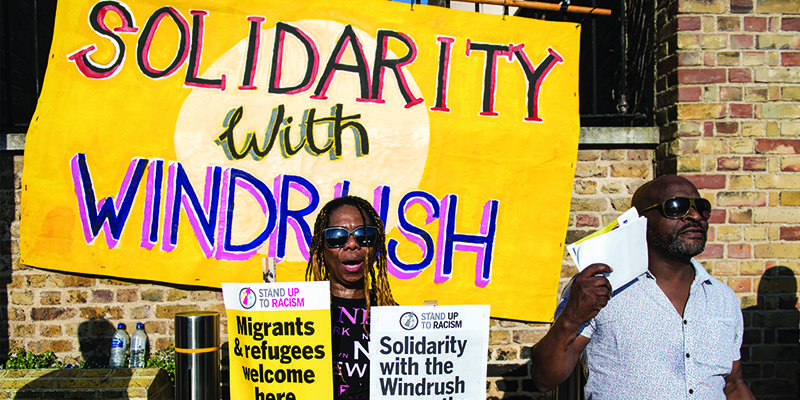The public might think the government has mishandled Windrush, but attitudes on immigration have changed little
The Windrush generation story has put the issue of immigration back in the spotlight – but what do the public think about it all?
Overall public opinion towards immigration remains negative: 63% of people think that immigration into Britain in the last ten years has been too high and by 32% to 24% they think it has been mostly bad for the country. While hostility to immigration has softened a little since 2016, the changes are comparatively small - the proportion thinking the number of people coming to the UK s too high is down seven points from 70% to 63%, while the proportion thinking it is bad for Britain has barely changed at all.

However, beneath these headline figures attitudes towards immigration are – and have always been – rather more nuanced. If you ask about different types of immigration, or immigration from different parts of the world, it suggests that there are many sorts of immigration that the British public are quite relaxed about, or even that people positively welcome.
Over 70% of people are happy with either the same or increased levels of skilled immigration, almost three quarters (73%) are happy with existing or increased numbers of foreign students paying to study at British universities, and 57% are happy with the same number of or more people fleeing persecution or war coming here. Additionally, nearing four in ten (38%) are happy with the current number of immigrants coming to work in the NHS and the same proportion (38%) would like to see more.
Public opposition to immigration only rises in two circumstances. Either when it comes to familial immigration (people coming to join family members already in the UK) where 42% want to see less of this type of migration, or low skilled immigration – here a majority (57%) want to see either less of this type of immigration or no immigration at all.

In recent weeks the government has been mired in a political scandal over the treatment of the "Windrush generation" - those Commonwealth citizens who came to Britain many decades ago when there was little need for formal paperwork, and who now find themselves legally resident in Britain but without the documents to prove it.
The public believe the government has fumbled the issue. Approaching two thirds (64%) think the government have handled it badly, just 10% think they've handled it well. Earlier YouGov polling found the overwhelming majority of British people thought Windrush migrants had the right to stay in Britain.
However, the approach that has led to such problems for the Windrush generation – the policy often described as the "hostile environment" – still has overwhelming public support. In principle, seven in ten (71%) support a policy of requiring people to show documents proving their right to be in Britain in order to do things such as taking up employment, renting a flat, or opening a bank account. Just 15% oppose this. Asked about specific situations, 82% think people should have to prove their right to be in the UK before accepting a job, 79% before registering with a GP and 74% before renting a home.

In other words, just because the public think the government's handling of the Windrush generation has been poor, it doesn't follow that they have stopped supporting the policies that caused those difficulties.
As is so often the case, the figures suggest the public would like to have its cake and to eat it. Britons want a tough policy that requires people to show their right to be in the country...but not one that persecutes those people with a right to be here but who have no paperwork. To cut the overall amount of immigration... but not the sort of immigration that brings valuable skills, university students, and NHS workers to Britain.
Will this damage the Conservative party’s poll numbers? As ever, people tend to see political events through the prism of their existing support. Both Labour and Conservative voters think that the Government have mishandled the problems faced by the Windrush generation.
However, while Labour voters are happy to put the blame for the scandal at the door or Theresa May, Conservative voters tend to apportion blame for it elsewhere. Only 7% of Tory voters thinking the difficulties faced by Windrush migrants are mainly the fault of Theresa May, and just 2% believing they are the fault of Amber Rudd. One in three (32%) Tory voters instead blame Home Office officials, while over a quarter (27%) believe it is the fault of the last Labour government.
Due to factors such as this, political scandals often have less effect than one might think. Party supporters are normally willing to give the party they support the benefit of the doubt and place blame elsewhere.
Photo: Getty









